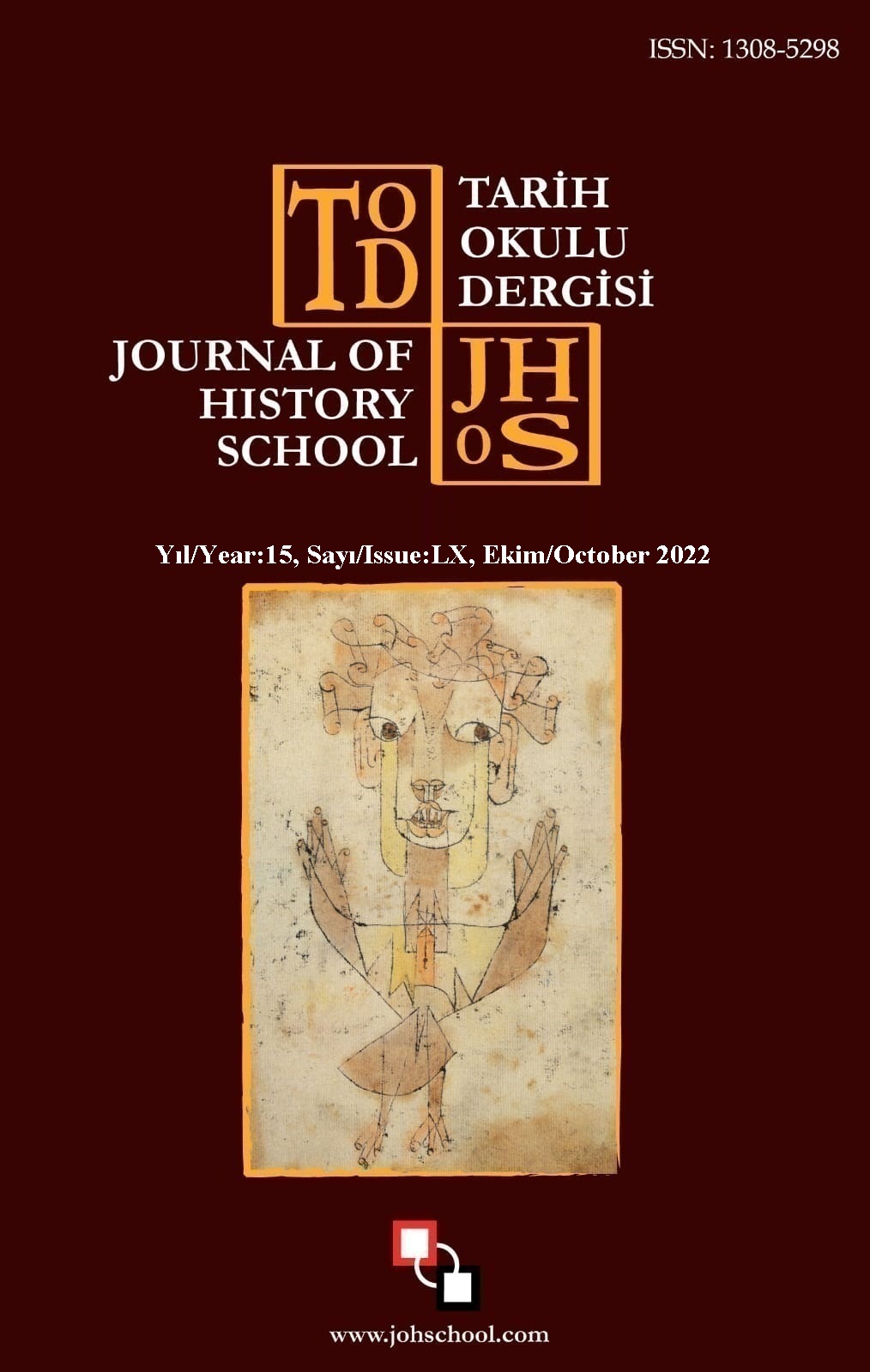Author :
Abstract
Öğrencilere aktif, anlamlı ve hayatın içinde öğrenme ve gelişme olanakları sağlayan sınıfdışı eğitimin önemi geçen yüzyılın başlarından itibaren savunulmuştur. Bu çalışmanın amacı günümüz eğitim anlayışında sınıfdışı eğitim olarak adlandırılan tekniklerin, tarihsel süreçte Türk eğitim sisteminde nasıl kullanıldığının ve bu tekniklerin köy enstitülerinde nasıl uygulandığının incelenmesidir. Araştırma kapsamında Türk eğitim tarihi ve köy enstitüleri literatürü taranmış, ayrıca köy enstitülerinin programları sınıf dışı eğitim uygulamaları açısından incelenmiştir. Araştırmanın bulgularına göre konargöçer bir yaşam tarzı benimsemiş olan eski Türklerde eğitim de bu yaşam tarzına göre şekillenmiş ve yaparak yaşayarak öğrenme esas alınmıştır. XIII. yüzyılda etkili bir kurum olan Ahilik teşkilatının Türklerde sınıfdışı öğrenme açısından önemli bir örnek oluşturduğu görülmektedir. Osmanlı’da da özellikle II. Meşrutiyet döneminde sınıf dışı eğitime yönelik uygulamaları görüyoruz. Bazı eğitimciler sınıf dışı eğitime yönelik önemli teorik ve uygulamalı çalışmalar yapmışlardır. Özellikle bu dönemin öğretmen okullarının çağdaş eğitim standartlarını büyük ölçüde yakaladığı görülmektedir. Osmanlı Devleti’nin son döneminde sınıfdışı eğitime yönelik bu çabalar Türkiye Cumhuriyeti’nin ilk yıllarında da devam etmiş ve köy enstitülerinin kuruluşunda etkili olmuştur. Köy enstitülerinin programında yer alan teknik ve ziraat dersleri ile uygulamaları, kuruldukları bölgenin özelliklerine göre belirlenmiştir. Enstitülerde dersler sadece sınıf içinde ya da laboratuvarlarda değil, sınıf dışında enstitünün bahçesinden başlayarak yakından uzağa doğru şekillenmiştir. Kültür derslerinin de bazı konuları sınıf dışında iş başında öğretilmiştir. Enstitülerin programları “yaparak yaşayarak öğrenme”, “üretim içinde eğitim ve öğretim”, “beceriye ve işe dayalı eğitim", "gerçekçilikten kaynaklanan eğitim” gibi ilkeler esas alınmıştır. Bu ilkelere dayanarak oluşturulan köy enstitüleri; Anadolu aydınlanmasında önemli bir rol oynadıkları gibi, dünya eğitim tarihi içinde Türkiye’ye özgü örnek bir kurum olarak hak ettiği yeri almıştır.
Keywords
Abstract
This study aims to examine the techniques known in today’s understanding of education as outdoor education, the history of how they were used in the Turkish education system, and how they were practiced in the Village Institutes. Within the scope of the study, the literature about history of Turkish education and village institutes were analized, with particular attention to the curriculums of the village Institutes and their relationship to outdoor education practices. According to the findings the nomadic lifestyle was decisive in the educational practices of the ancient Turks. Furthermore, its emphasis was based on learning by doing and experiencing, rather than theoretical practices. It is seen that the Ahi organization, which was an effective institution in the 13th Century set important examples of outdoor education among Turks. We can see outdoor education practices in Ottoman times, too, particularly in the second constitutionalist period. Some educators have done important theoretical and applied studies on outdoor education. In particular, it is seen that the teacher training colleges of this period have largely keep up with the times in education standards. These efforts towards outdoor education in the last period of the Ottoman Empire continued in the first decades of the Republic of Turkey and were influential in the establishment of the village institutes. The technical and agricultural lessons in the village institutes curriculums and how they were applied were determined according to the features of the region in which they were established. Lessons in the institutes were shaped not only in classrooms or laboratories but also outdoors. Some of the topics of culture lessons were also taught outdoors and on the job. The programs of the institutes are based on principles such as "learning by doing", "education and training in production", "skills and work- based training", and “education born of realism”. Founded based on these principles, the village institutes played a key role in Anatolia’s enlightenment and took their rightful place in the history of world education as an exemplary establishment specific to Turkey.





